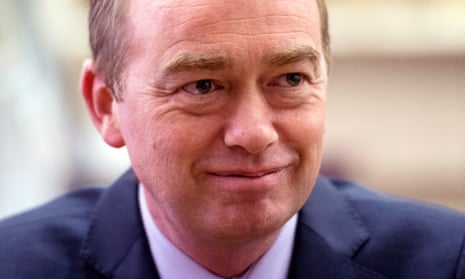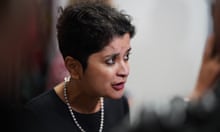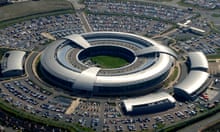Theresa May’s pledge to regulate the internet to clamp down on the “safe space” for radical jihadis risks turning the web into a tool for surveillance and censorship, the Liberal Democrats’ leader has said.
Tim Farron, likening May’s plan to North Korea’s and China’s state monitoring, said the prime minister’s speech, in the wake of the London Bridge attack, had been highly political despite the ostensible cancellation of campaigning for a day, ahead of the general election on Thursday.
“These issues are not going be solved with political gimmicks or by banning particular technologies,” Farron wrote in an article for the Guardian.
“Instead of posturing, politicians need to work with technology companies like Facebook, Twitter and WhatsApp, and with other countries, to develop solutions that work to keep people safe.
“The alternative is a government that monitors and controls the internet in the way that China or North Korea does. If we turn the internet into a tool for censorship and surveillance, the terrorists will have won. We won’t make ourselves safer by making ourselves less free.”
Farron said politicians did the intelligence agencies “a great disservice” where the only response was tough rhetoric.
He wrote: “I trust our police and security services … they have some of the most extensive powers in any democracy anywhere in the world.
“In the choices we make we should provide the resources necessary for those who keep us safe to do their jobs with the powers they have been given.
“We should also jealously guard the hard-won liberties that define us as a country. If we make the wrong choices those who seek to change our way of life have won.”
Farron said reversing the cuts to the police service would have a bigger effect on the prevention of terror attacks than banning certain technologies.
“In the choice between cuts to corporation tax and properly funding our police, we should fund our police,” he said.“Let’s be clear – fewer police on the beat means fewer conversations, less information being passed on and less knowledge about who’s who and who needs to be kept under surveillance.”
Farron accused May of presiding over severe police cuts during her tenure at the Home Office and demanded the Conservatives committed to not shelving an inquiry into foreign funding of radicalisation in the UK.
The Guardian revealed last week that the report, commissioned 18 months ago by David Cameron as a quid-pro-quo to the Lib Dems supporting the extension of airstrikes in Syria, had not been completed and might not be published because of its sensitive content.
“Theresa May now has a choice. Does she publish that report or keep it hidden?” Farron said.
“Theresa May talks of the need to have some difficult and sometimes embarrassing conversations. That should include exposing and rooting out the source funding of terror, even it means difficult and embarrassing conversations with those like Saudi Arabia that the government claims are our allies.”
The party has also committed to scrapping the anti-radicalisation Prevent programme, calling it a failure.
“We have a government anti-terrorism engagement strategy that isn’t trusted and doesn’t listen to communities, even when they do try to speak out about those – like Salman Abedi – who are considered a danger,” Farron wrote.
“In the choice between ineffective mass surveillance, and investment in the sort of intelligence we are told is best – on the ground and closest to our communities, trusted and appreciated – Theresa May chose the former through the Investigatory Powers Act.”








